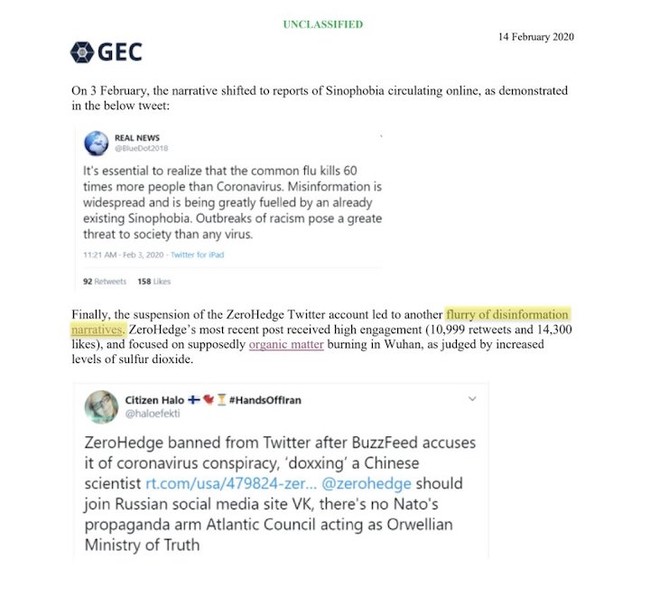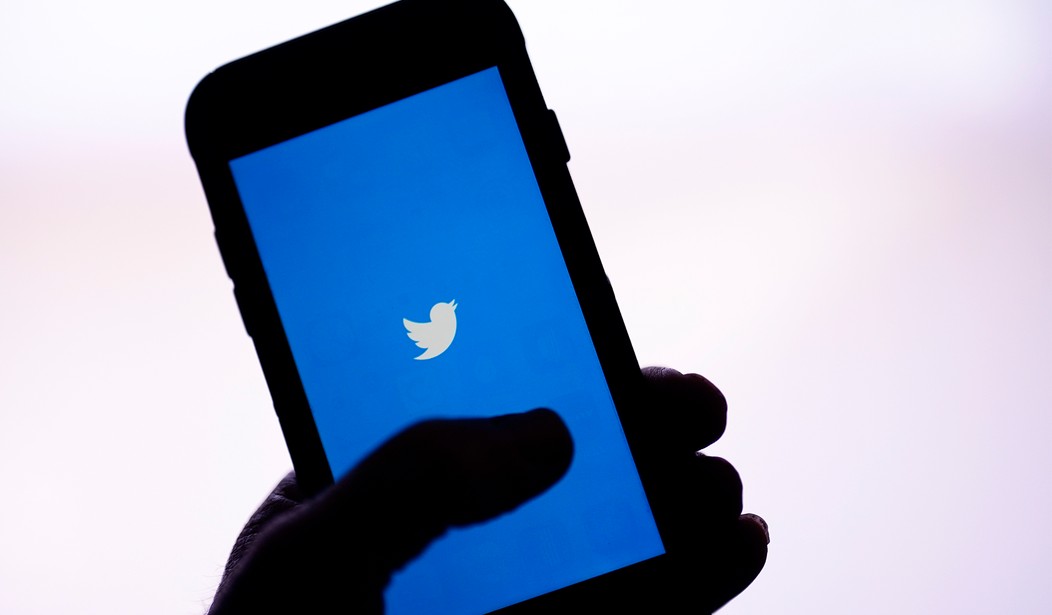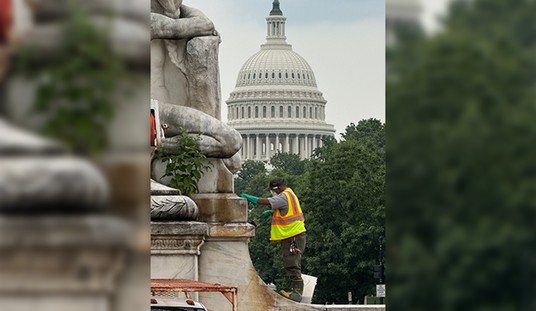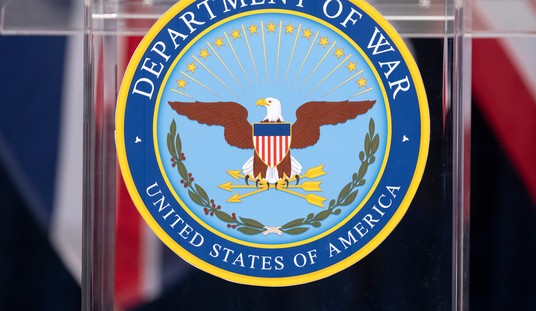Reporter Matt Taibbi has dropped the latest round of Twitter files, this time dubbed “The FBI Belly Button.”
The new files detail a tangled web being woven between the FBI, the State Department, Twitter (and other social media companies) and media. While Twitter exec Yoel Roth was keen to deal with the FBI, he and others in the social media giant quickly became concerned about the flood of other agencies rushing in to get their piece of the censorship pie.
The FBI has had their hooks in Twitter since long before the 2020 election, but when you get into bed with the devil, you’d best believe you’ll soon find yourself sleeping on the edge. Twitter execs thought they were working on behalf of social justice, but instead just worked themselves into being exalted secretaries.
The fact that the FBI actually had (former-but-not-so-former) employees working at Twitter, and paid out the tech company $3,415,323 is explained in great detail throughout this latest thread. Yoel Roth wanted to change the world (or at least change Trump’s world) and ended making the premier social media company on the planet into a bunch of overworked, underpaid government stooges. Read the entire thread here and enjoy the summary below.
The FBI “Belly Button”
As the pandemic began to ramp up, something called the Global Engagement Center(GEC) – a subdivision of the State Department- brought forward a report called “Russian Disinformation Apparatus Taking Advantage of Coronavirus Concerns.”
https://t.co/BcFhHCvjAE February, 2020, as COVID broke out, the Global Engagement Center – a fledgling analytic/intelligence arms of the State Department – went to the media with a report called, “Russian Disinformation Apparatus Taking Advantage of Coronavirus Concerns.” pic.twitter.com/KjUeE8vejt
— Matt Taibbi (@mtaibbi) January 3, 2023
The GEC was gunning to flag any accounts that referred to lab leaks or suspicions about the CIA as Russian disinformation. The Twitter files indicate it was clear the State Department was looking to pressure social media into shaping the COVID message even from the beginning days.
4.The GEC flagged accounts as “Russian personas and proxies” based on criteria like, “Describing the Coronavirus as an engineered bioweapon,” blaming “research conducted at the Wuhan institute,” and “attributing the appearance of the virus to the CIA.” pic.twitter.com/a4xBotQZ2m
— Matt Taibbi (@mtaibbi) January 3, 2023
But they didn’t stop there. They flagged accounts that were even simply retweeting “disinformation.” After Twitter banned ZeroHedge for speculating about a lab leak origin, the State Department also flagged accounts that were tweeting about the suspension, claiming those accounts were helping to expand false narratives.

Taibbi’s drop shows that Twitter was growing increasingly anxious about the relationship between government agencies and media, particularly about being cut out of the equation. At the same time, Twitter exec Yoel Roth received communication from the Clemson Forensics Media Hub worrying that Twitter hadn’t made “a Russia attribution in quite some time,” and offering to coordinate with Roth to help connect some dots. It is clear the narrative was shaping, and multiple actors were pressuring each other to conform.
Twitter leadership was also deeply concerned about the number of government agencies seeking to coordinate with Roth in flagging accounts. Twitter analysts were clearly overwhelmed by the volume of requests from the FBI and other entities. Things were spinning out of control. The GEC was very obviously trying to become de facto content moderators, and it began to concern Roth. The GEC was hell-bent on tying any COVID dissent to Russian/Chinese disinformation. At the time, Twitter was not fully on board with the notion, saying the data didn’t totally support the assertion. Taibbi notes that the tension in messaging came to a head in one rare instance, in which Twitter publicly contradicted the State Department’s narrative.
14.The episode led to a rare public disagreement between Twitter and state officials: pic.twitter.com/iydnso8iuJ
— Matt Taibbi (@mtaibbi) January 3, 2023
Although working with the FBI by this time, Twitter “balked” at jumping into bed with the GEC and resented their angling to become what amounted to a partner in the social media/media industries. With the election close at hand, Roth felt introducing this more aggressive agency could interrupt the relatively “stable” internal process that had already been developed with the FBI.
Taibbi suggests that one reason Roth was amenable to FBI interference but not the State Department is he perceived the GEC to be closer to the Trump administration. One DoD source posited that Roth felt the FBI was “less Trump-y.” Another angle? Roth didn’t want the Trump administration to have any influence over the dissemination of information during the 2020 election. The game was already afoot.
18.After spending years rolling over for Democratic Party requests for “action” on “Russia-linked” accounts, Twitter was suddenly playing tough. Why? Because, as Roth put it, it would pose “major risks” to bring the GEC in, “especially as the election heats up.” pic.twitter.com/tAd6lVh2KH
— Matt Taibbi (@mtaibbi) January 3, 2023
The agreement was reached that other agencies like GEC and DHS would be looped in to the industry calls and plans, but the FBI and DHS would be the “sole conduit.” Roth and the other execs did not like that GEC kept taking information straight to the media. The circle of influence had to be kept small.
The FBI would be become the “belly button” of communications between the U.S. government and Twitter. Agent Elvis Chan inquired of Roth how the agencies would communicate with “industry partners” during the presidential debates, and all parties agreed to open a Signal channel just prior to the first Presidential debate.
As Americans were innocently watching their political candidates make their cases for election, social media giants and the FBI were not-so-innocently watching Americans, and plotting how to shape their communications about the debates.
Unsurprisingly, the “security experts” weren’t that great at their jobs, using a Word document to collect and disseminate the private numbers of every top level agent on the Signal call (Tweet #24).
24.They eventually settled on an industry call via Signal. In an impressive display of operational security, Chan circulated private numbers of each company’s chief moderation officer in a Word Doc marked “Signal Phone Numbers,” subject-lined, “List of Numbers.” pic.twitter.com/5pTq7sfshh
— Matt Taibbi (@mtaibbi) January 3, 2023
A shocking number of requests from “every conceivable” government agency began pouring into Twitter, and all seemed to want to know one thing at the end of the day…could they be confident Twitter was taking direction from the FBI?
But it wasn’t just about flagging “misinformation” accounts or national security issues. Soon, agencies began requesting Twitter ban or scrub accounts that certain government employees just didn’t care for. Even Adam Schiff’s office tried to push Twitter to dump accounts that were too critical of him and his work. Surprisingly, Twitter refused. “We don’t do this,” they responded.
27.They also received an astonishing variety of requests from officials asking for individuals they didn’t like to be banned. Here, the office for Democrat and House Intel Committee chief Adam Schiff asks Twitter to ban journalist Paul Sperry: pic.twitter.com/SXI1ekqi13
— Matt Taibbi (@mtaibbi) January 3, 2023
Twitter, led by Yoel Roth, had opened the door to U.S. Government interference and now they were drowning in it. The requests were nonstop and varied. In one interesting series of requests, Twitter was asked to flag Russian media accounts just after the Ukraine invasion. Twitter was specifically warned about Ukraine prosecutor Viktor Shokhin, who has accused the U.S. government – and the Bidens – of deep “corruption.”
35.They were even warned about publicity surrounding a book by former Ukraine prosecutor Viktor Shokhin, who alleged “corruption by the U.S. government” – specifically by Joe Biden. pic.twitter.com/EWdl5L2IpG
— Matt Taibbi (@mtaibbi) January 3, 2023
In the days leading up to the 2020 election, the requests from government agencies had become overwhelming and unmanageable. It became so chaotic, Twitter analysts were constantly going to the FBI to sort out which requests should be given priority. Staff simply could not keep up. They were now a glorified consulting firm.
As Taibbi lays it out, this is exactly what led to the FBI payout at Twitter. The social media giant that had been originally hell bent on “correcting” the mistake of the 2016 elections ended up painting themselves into a chaotic corner of their own making. Not only were they now just a basic subcontractor for the FBI, they had somehow managed to be grossly underpaid for the amount of work they provided.
To sum up: Twitter leadership was ticked off about the 2016 elections, and was already conspiring with the FBI and other social media giants to “curb” the flow of “disinformation.”
Twitter let the FBI in the door, because they perceived that agency to be anti-Trump. They paved the way for media and social media to collude with what could be called “shadow government” (that is, the unelected bureaucrats who run the government with their own agendas as elected officials just come and go) to influence the outcome of the election. Then everyone else came knocking, conservatives started noticing the egregious nature of the censorship, right-wing media started making a stink, and Elon Musk suddenly became interested in owning a social media empire. By the time they realized they were not going to be able to control government “requests” it was too late. They were no longer in control of the narrative and scrambling to keep up.
This latest release of the Twitter files is a gory peek into the utter crap show that Twitter had devolved into.
40.For more on the #TwitterFiles, check out @BariWeiss, @ShellenbergerMD, @LHFang, and @davidzweig. For more on this story, read https://t.co/otqYK3tD7c
— Matt Taibbi (@mtaibbi) January 3, 2023













Join the conversation as a VIP Member